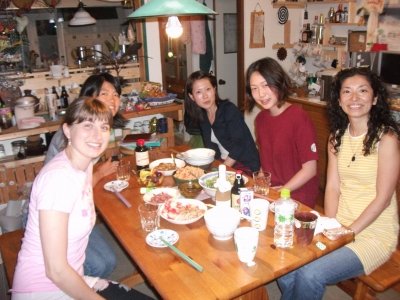In Japanese, there’s a class of polite phrases that are useful to memorize since they’re used quite almost daily. One of these is gochiso-sama deshita (go-chi-soh sah-mah desh-ta), which is said when you finish eating a meal, and it can be translated as “thank you for the feast.” (Japanese children must say this phrase before they’re allowed to leave the table, making it roughly the same as “May I be excused?” in English.) In work environments, it’s common to say otsukare-sama deshita (oh-ts-kah-reh-sah-mah desh-ta) to your co-workers when they leave for the day, meaning something like “thank you for working hard today, you must be tired.” Japan is quite a “vertical” society, with different language used depending on whether you’re the senpai or the kohai — the senior or junior member of an organization — and there’s a version of this phrase for when speaking to people lower in status than you, which is gokuro-sama deshita (goh-koo-roh sah-mah desh-ta). Because I’m the boss around here I could use this alternate phrase with my staff, however I purposely avoid it, preferring to use the normal otsukare-sama deshita farewell instead. This is no doubt in part because I come from the “horizontal” U.S., but also because my staff is working just as hard as I am, so why would I talk to them differently?
5 Reasons to Watch You Can’t Be In a Rom-Com with Your Childhood Friends!
The Winter 2026 anime season has started, and as usual, I'm trying to decide which shows to recommend to J-List...
















